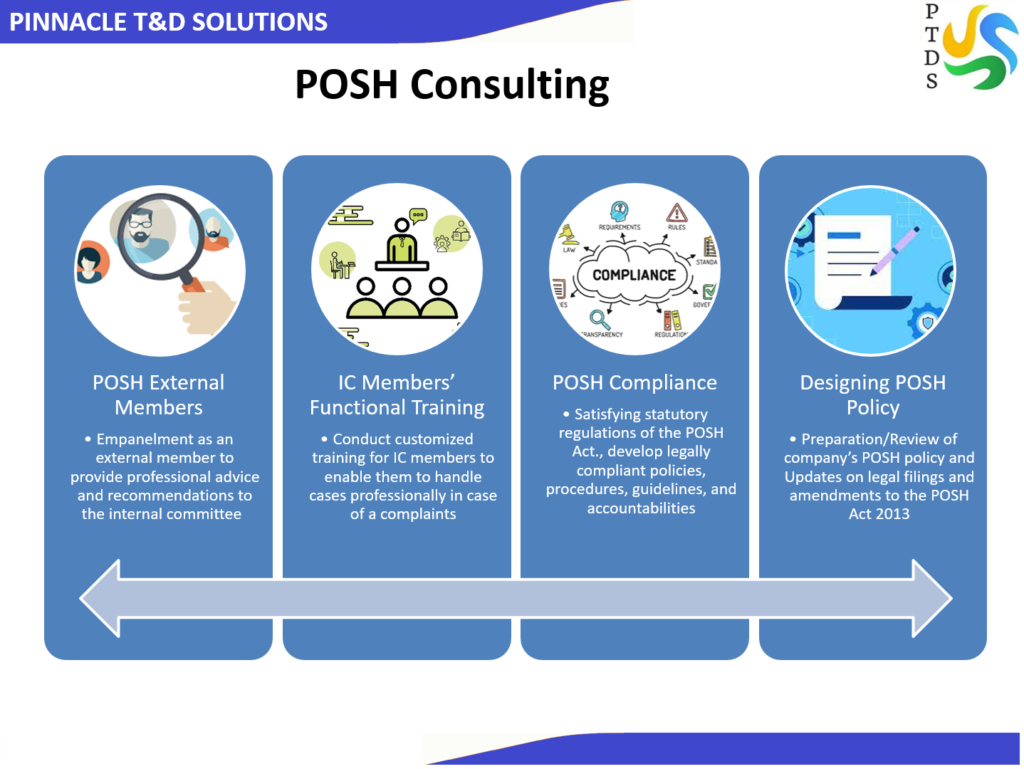About POSH
Making work a safe place and creating a culture of respect is the responsibility of every employee. Often employees are not aware about appropriate and inappropriate behaviours that constitute harassment. Managers are not equipped to spot inappropriate behaviours in the team or handle a harassment complaint effectively. Worse, many companies still do not have a policy and an ICC (Internal Complaints Committee) against sexual harassment, as mandated by the Anti-Sexual Harassment Act of 2013 and Vishaka Guidelines. This could lead to many problems such as a hostile work environment, employees not feeling safe, bullying, decreased morale and increased employee turnover.
The most effective weapon against sexual harassment is prevention. Harassment does not disappear on its own. In fact, it is more likely that when the problem is not addressed, the harassment will worsen and become more difficult to remedy as time goes on.
Hence, It is important that all employees, managers and ICC go through quality training in the area of POSH.
Pinnacle Training & Development Solutions have been identified as ‘Training Resource Partners’ by Central Ministry of Women and Child Development to conduct training programs on POSH Act 2013
Our Director Dr. Abhishek Tiwari is even pursuing his 2nd PhD. from Dr. APJ Abdul Kalam University, Indore on POSH:
Topic of Research “A study on Impact of Prevention of Sexual Harassment (POSH) Training Programs on Awareness Amongst Women Employees”

Workshop On “Prevention of Sexual Harassment and Gender Sensitivity At Workplace” – For Employees (1 Day Program)
|
SESSION – I |
SESSION – II |
|
|
*All the case studies and role play situations are real ones which has been picked up from the stories of those people who have suffered in such situations. We have just changed the name of the company, Industry and characters.
“Prevention of Sexual Harassment and Gender Sensitivity At Workplace” (For ICC Members) (1 Day Program)
Indicative Schedule
|
SESSION – I |
SESSION – II |
|
|
Gallery of POSH Training
POSH Training Autority Letter From Government of India & Ministry of Women and Child Development





